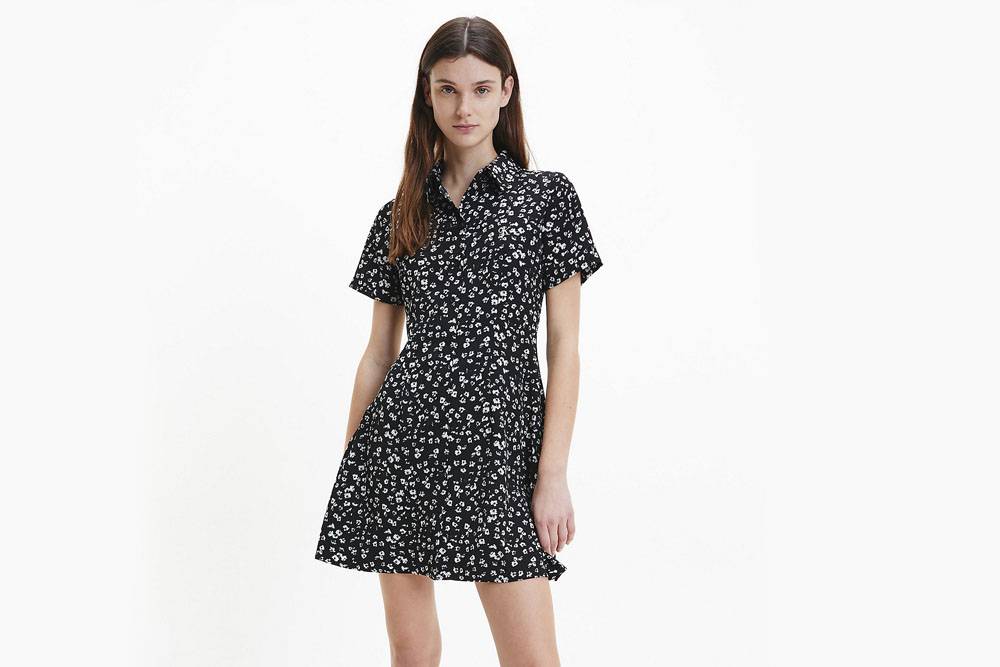
Calvin Klein is an American fashion retailer founded in 1968 in New York by American designer Calvin Klein and businessman Barry K. Schwartz. The multinational clothing-retail company creates high-end fashion for men, women, and children.
Calvin Klein makes clothing, accessories, shoes, swimwear, jewelry, watches, and perfumes. It specializes in designer fashion, ready-to-wear, and haute couture garments.
American clothing company Phillips-Van Heusen (PVH Corp) owns Calvin Klein and many other popular and successful apparel brands such as Tommy Hilfiger, True & Co., Warner's, and Olga.
Calvin Klein is driving fashion forward with a new level of ambition and transparency for sustainable business. It wants to move the fashion industry toward a more innovative and responsible future.
Panaprium is independent and reader supported. If you buy something through our link, we may earn a commission. If you can, please support us on a monthly basis. It takes less than a minute to set up, and you will be making a big impact every single month. Thank you!
Sustainability Rating: 5/10
Rating FAQ
Category: Clothing, accessories, shoes, bags, jewelry
For: Women, men, children
Type: Basics, denim, knitwear, activewear, underwear, loungewear, swimwear, outerwear, nightwear, sandals, flats, boots, sneakers
Style: Casual, classic, haute couture
Quality: Medium
Price: $$
Sizes: XS-XL, 2-12 (US), 4-14 (UK), 34-42 (EU), 4-14 (AU), plus size
Fabrics: Cotton, linen, hemp, jute, lyocell, modal, viscose, cupro, acetate, polyester, nylon, spandex, acrylic, neoprene, polyurethane, rubber, leather, wool, silk, down
100% Organic: No
100% Vegan: No
Ethical & Fair: No
Recycling: Yes
Producing countries: Bangladesh, Brazil, Bulgaria, Cambodia, China, Egypt, Ethiopia, Guatemala, India, Indonesia, Italy, Kenya, Madagascar, Mauritius, Mexico, Morocco, Pakistan, Philippines, Portugal, Romania, Spain, Sri Lanka, Taiwan, Thailand, Tunisia, Turkey, Vietnam
Certifications: BCI, GRS, RCS, GOTS, OCS, PEFC, RDS, FSC
Sustainability Practices
Calvin Klein takes wide-ranging measures to address responsibility, inclusion, and diversity. It makes progress across key initiatives on environmental sustainability, human rights, and climate change.
Calvin Klein remains dedicated to innovation and continuous improvement. It focuses on delivering on its purpose to drive fashion forward for good.
Calvin Klein only uses a tiny proportion of organic materials such as organic cotton and hemp, or recycled materials such as recycled cotton, recycled polyester, and regenerated nylon.
Most of the fabrics it uses are natural without relevant certifications, such as cotton or linen, or synthetic petroleum-based fibers such as polyester, nylon, acrylic, and more.
Calvin Klein also uses a small amount of semi-synthetic fibers or regenerated cellulosic fabrics such as Tencel lyocell, modal, acetate, cupro, and viscose.
Tencel is an eco-friendly fiber made with wood pulp from certified sustainable forests. But only a tiny proportion of the materials used by Calvin Klein are environmentally friendly and sustainable.
Calvin Klein publishes a list of its manufacturers on its corporate website, PHV.com. It aims to create safe spaces, improve access to education and enhance the quality of life.
The 2021 Fashion Transparency Index gave Calvin Klein a score of 59% based on how much the group discloses about its social and environmental policies, practices, and impacts.
Calvin Klein manufactures its clothes in Turkey and many other East Asian countries where human rights and labor law violations still happen every day.
The American clothing retailer doesn't show any labor certification standard that ensures good working conditions, decent living wages, health, safety, and human rights for workers in its supply chain.
Calvin Klein has a code of conduct that applies to all its suppliers and subcontractors to achieve a genuine improvement in the lives of working people around the world and the communities in which they live.
Calvin Klein assesses compliance with its Code of Conduct by informal visits or third-party audits with or without notice. It audited 67% of its Tier 1 suppliers to a labor code of conduct in 2020.
Calvin Klein doesn't use exotic animal skin, hair, fur, or angora. But it uses leather, wool, silk, and down feathers to manufacture many of its clothing pieces.
These animal-derived materials are cruel and unethical. They also harm the environment by producing greenhouse gases and waste. More sustainable alternatives exist.
Sustainability Goals
Calvin Klein has committed to reducing its impact across the entire supply chain. It wants to eliminate hazardous chemicals and microfibers and provide access to water.
Calvin Klein plans to achieve zero discharge of hazardous chemicals by 2025 in the manufacture of its products. It will also filter water leaving wet processors for harmful microfibers.
Calvin Klein has committed to having 100% of its suppliers meet or exceed all of its social and environmental standards by 2030. 100% of its suppliers will promote and maintain safe and healthy work environments by 2025.
Calvin Klein plans complete circularity of purchased products and full traceability of key raw materials by 2025. It will sustainably source 100% of its cotton and viscose by 2025 and 100% of its polyester by 2030.
Calvin Klein will drive a 30% reduction in its supply chain emissions by 2030. It will achieve zero waste and eliminate single-use plastics by 2030.
Buy Here
Discover Calvin Klein's sustainable collections at CalvinKlein.com.
Reviews And Experiences With Calvin Klein
Have you had (good) experiences with shopping at or the products of Calvin Klein? Then leave us your rating below.
What We're Up Against
Multinational corporations overproducing cheap products in the poorest countries.
Huge factories with sweatshop-like conditions underpaying workers.
Media conglomerates promoting unethical, unsustainable products.
Bad actors encouraging overconsumption through oblivious behavior.
- - - -
Thankfully, we've got our supporters, including you.
Panaprium is funded by readers like you who want to join us in our mission to make the world entirely sustainable.
If you can, please support us on a monthly basis. It takes less than a minute to set up, and you will be making a big impact every single month. Thank you.






























0 comments